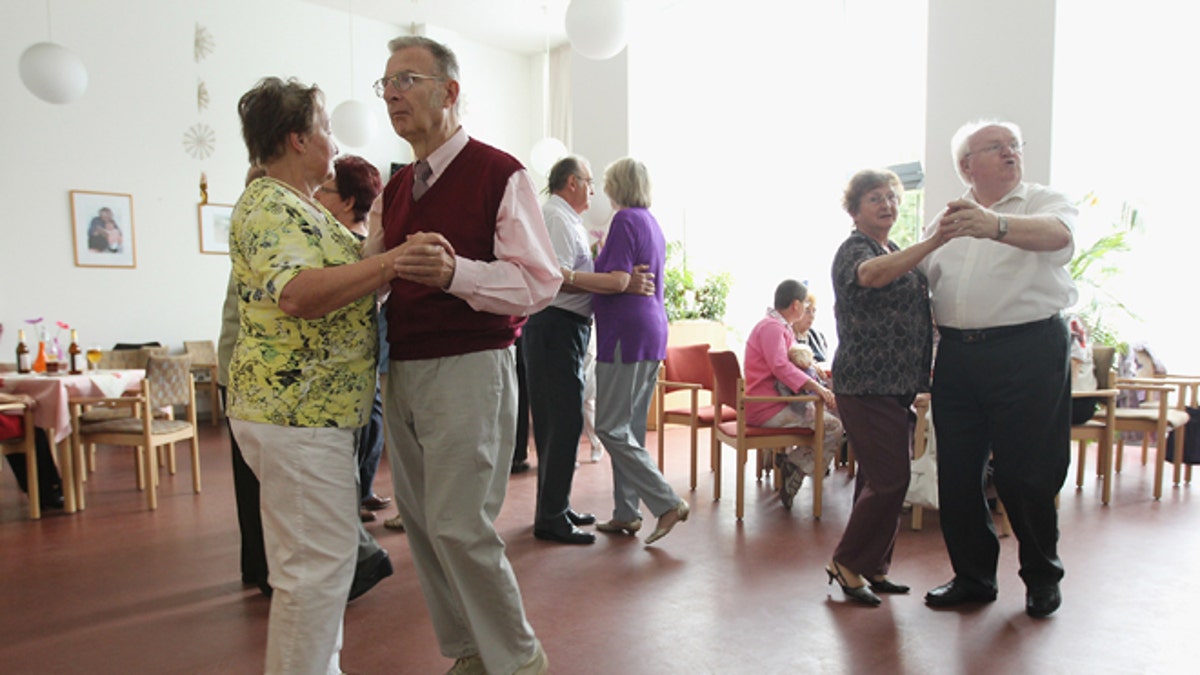
Elderly people dance during an afternoon get-together in the community room of the Sewanstrasse senior care home in Lichtenberg district on August 30, 2011 in Berlin, Germany. (2011 Getty Images)
The preliminary findings from a Swedish dementia study released last week show that healthy living – i.e. eating well, engaging in social activity, maintaining cognitive and physical agility – may slow the onset of dementia for those at risk of Alzheimer's.
While there are no guarantees, the study's lead author, Dr. Miia Kivipelto of the Karolinska Institute in Stockholm, told Reuters, “This is really hard evidence that we can do something for brain health.”
Dr. Joe Verghese, professor of neurology and medicine at the Albert Einstein College of Medicine in New York, told Fox News Latino that dancing seemed to help stave off dementia.
“Dance clearly involves a lot of aerobic activity and physical effort," he said, "which is associated with increased blood flow to the brain, [simulating] brain growth factors and new connections in the brain. But dancing is also a cognitive activity…[involving] a lot of mental effort.”
Verghese was the lead researcher for a study published in the New England Journal of Medicine that found that, among physical activities, dancing was the only one that seemed to help prevents both Alzheimer’s disease and vascular dementia.
“The participants who danced three or four times a week had a reduced risk of dementia compared to people who didn’t dance at all or danced very rarely,” Verghese told Fox News Latino. “The risk reduction of dementia in the group [that danced frequently] was 76 percent.”
Verghese and his fellow researchers divided subjects from the long-term Einstein Aging Study into two groups, one consisted of those who participated in cognitively-stimulating activities like reading, writing and playing musical instruments, and the other made up of people who engaged in physically-stimulating ones. The activities included aerobics, swimming, biking and dancing.
“Cognitive activities had a strong effect on reducing the risk of dementia," Verghese said. "Physical activities overall did not... But among the 11 activities we looked at, dancing was the only [physical activity] shown to have an effect.”
While all of the physical activities benefited the body, only dancing was shown to help both the brain and the body. Verghese believes this may be because of the analytical natural of dance.
“If we could undoubtedly prove that activities like dance, which are a pleasure to do, are actually beneficial, then that would be great,” Verghese told FNL. "But what we need are more studies to prove that activities like dance really do have a cognitive benefit.”
